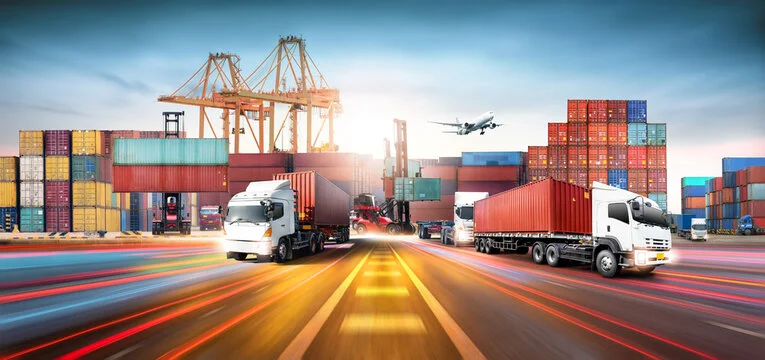Inventory Management Mistakes That Cause Shipping Delays
Home Inventory Management Mistakes That Cause Shipping Delays Shipping delays are one of the biggest frustrations for…
When businesses step into the world of international trade, they often come across two terms that seem similar but serve very different purposes: freight forwarding and customs clearance. Many importers and exporters confuse the roles of a freight forwarder and a custom clearing agent, yet both play critical parts in ensuring smooth cargo movement across borders.
Whether you are shipping through sea freight services, air freight services, or using FCL shipping and LCL shipping, understanding the distinction between these two services can save your business time, costs, and compliance issues.
In this article, we’ll break down the difference between freight forwarding and customs clearance, highlight their responsibilities, and explain why businesses in Pakistan often rely on a logistics company that offers both services under one roof.
A freight forwarder is a company or individual that manages the shipment of goods from one destination to another, on behalf of businesses. They don’t physically move the cargo but instead act as an intermediary between shippers and carriers.
For example, if a business in Lahore needs to import electronics from China, a freight forwarding company in Pakistan will arrange the sea freight services, prepare all necessary shipping documents, and monitor the cargo until it reaches Karachi Port.
While freight forwarding handles the movement of goods, customs clearance deals with the legal permissions required to import or export those goods. A custom clearing agent ensures that cargo complies with Pakistani customs regulations.
For example, if the same electronics shipment arrives at Karachi Port, the custom clearing agent ensures it clears customs smoothly, with all duties and taxes paid, before the cargo is released to the buyer.

Aspect | Freight Forwarding | Customs Clearance |
Primary Role | Manages transportation and logistics of goods | Ensures legal compliance for goods crossing borders |
Who They Work With | Carriers (shipping lines, airlines, trucking companies) | Customs authorities and government agencies |
Main Tasks | Route planning, carrier booking, documentation, consolidation | Filing declarations, paying duties, ensuring compliance |
Stage of Process | Before and during cargo transit | Before cargo is released at destination |
Specialization | Logistics and cargo movement | Regulatory and legal clearance |
With Pakistan’s growing international trade, companies can’t afford mistakes in logistics. Having access to both freight forwarding services and a customs clearing agent ensures:
When selecting a partner for freight forwarding and customs clearance, consider:
While freight forwarding and customs clearance are different services, they work hand in hand to ensure smooth global trade. A freight forwarder takes care of the logistics, whether it’s FCL shipping, LCL shipping, air freight, or sea freight, while a custom clearing agent ensures goods are legally cleared at ports like Karachi and Lahore.
For businesses in Pakistan, partnering with a professional logistics company that offers both services is the best way to streamline supply chains, avoid delays, and focus on growth.
If you’re an importer or exporter looking for reliable freight forwarding in Pakistan, backed by expert custom clearance agents, choosing an experienced logistics partner will move your business forward with confidence.
Home Inventory Management Mistakes That Cause Shipping Delays Shipping delays are one of the biggest frustrations for…
Home Why Efficient Supply Chains Are Crucial for Growing Businesses In today’s competitive market, businesses of all…
Home Documentation Errors That Can Delay Your Imports and Exports In international trade, time is money. Delays…